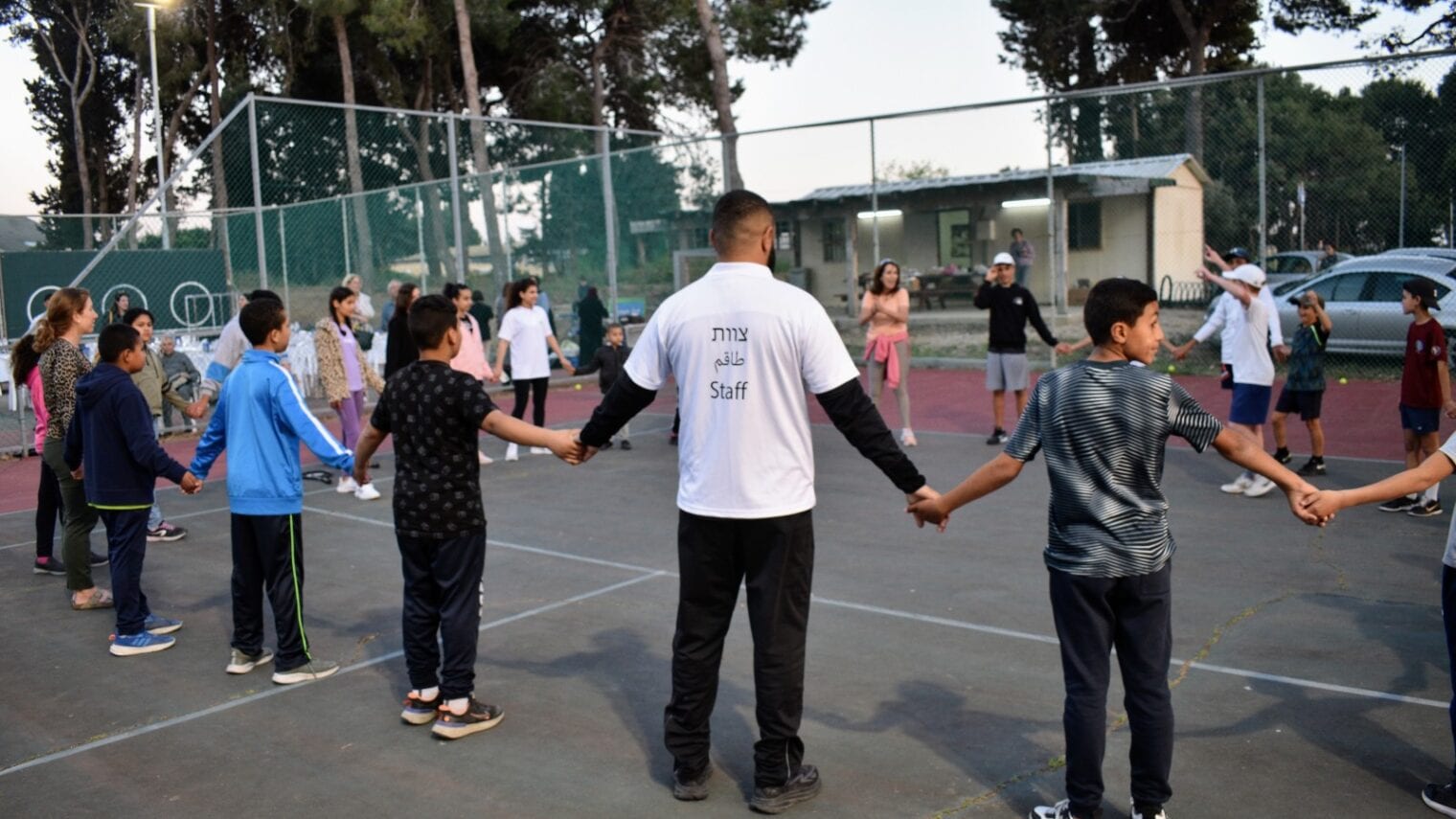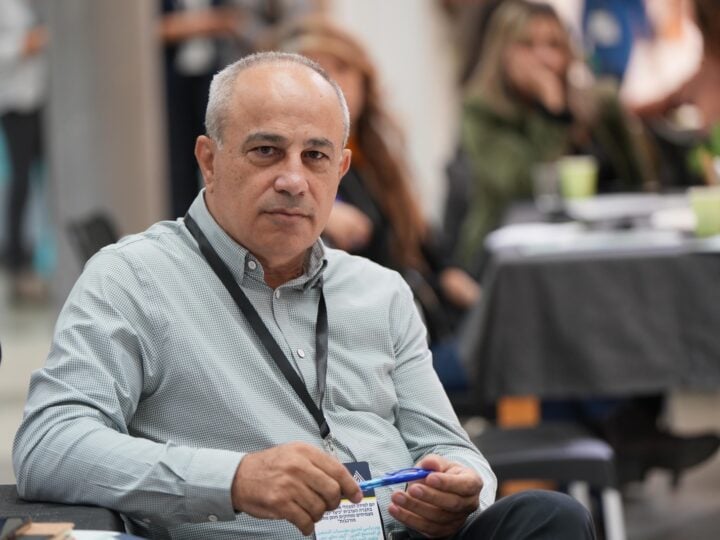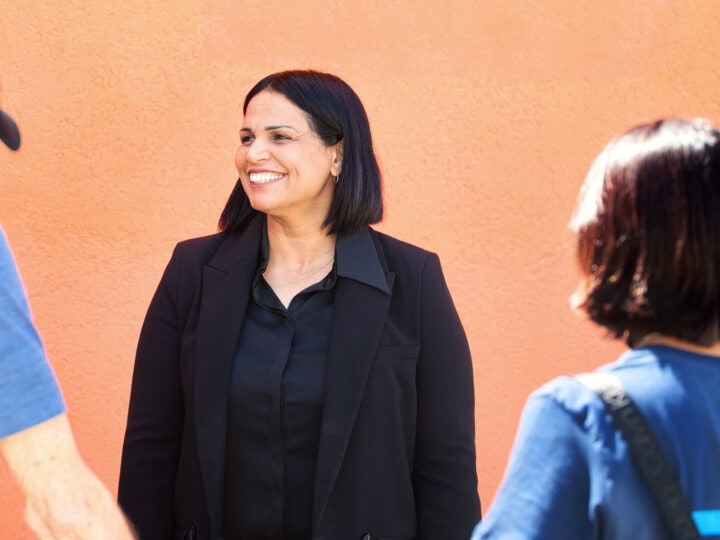In these dark times when many coexistence projects in Israel are taking time out to reassess, Lee Wilson remains committed to her goals as director of the Freddie Krivine Initiative (FKI), which runs four afterschool tennis and community clubs for Arab and Jewish youth.
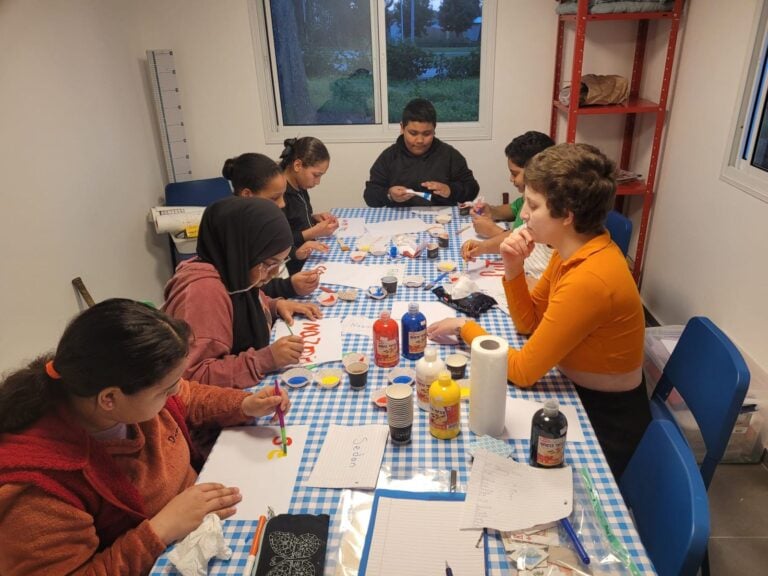
Although there were concerns, Wilson decided not to cancel activities.
The annual Hannukah party went ahead but changed its format to a less festive warmup practice at the clubhouse in Beit Hanania, a moshav between Caesarea and Jisr az-Zarqa.
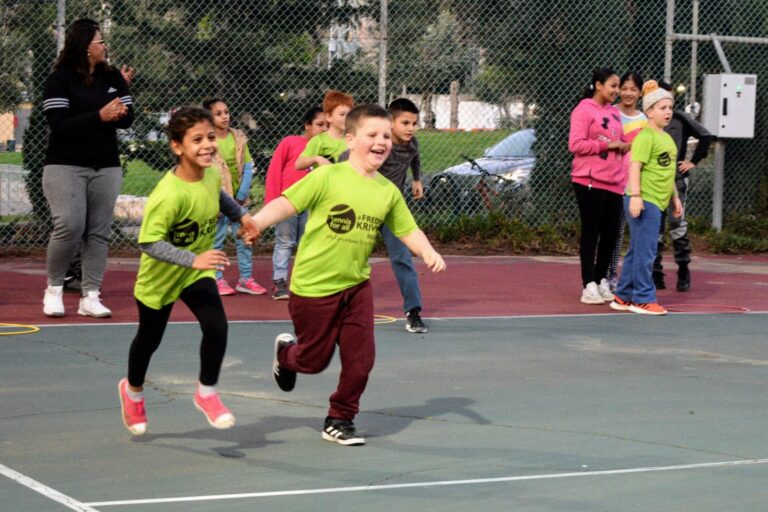
“The scene was nothing short of magical as the children laughed, ran around and engaged in tennis games, a testament to the possibility of living together in peace, side by side,” Wilson tells ISRAEL21c.
She says the event was filmed by an Israeli Arab news station in order to encourage continued shared society activities.
Wilson is also maintaining the spirit of the late Freddie Krivine, who founded the project in 2000.
“Freddie set up his first-ever coexistence program in the middle of the second intifada. When everyone told him, ‘This isn’t the time,’ he would reply, ‘This is exactly the right time!’
“We, too, believe right now — when Israel is in crisis – this is the time to keep building relationships for a better Israel.”
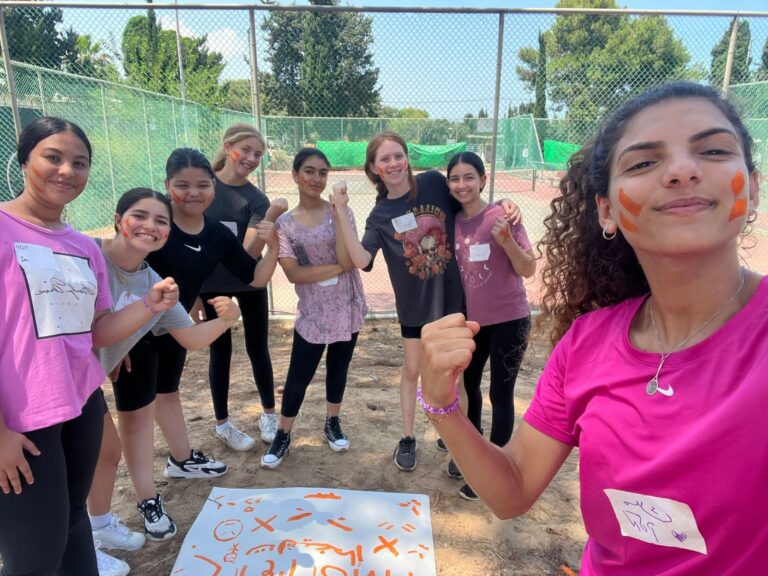
From England to Israel
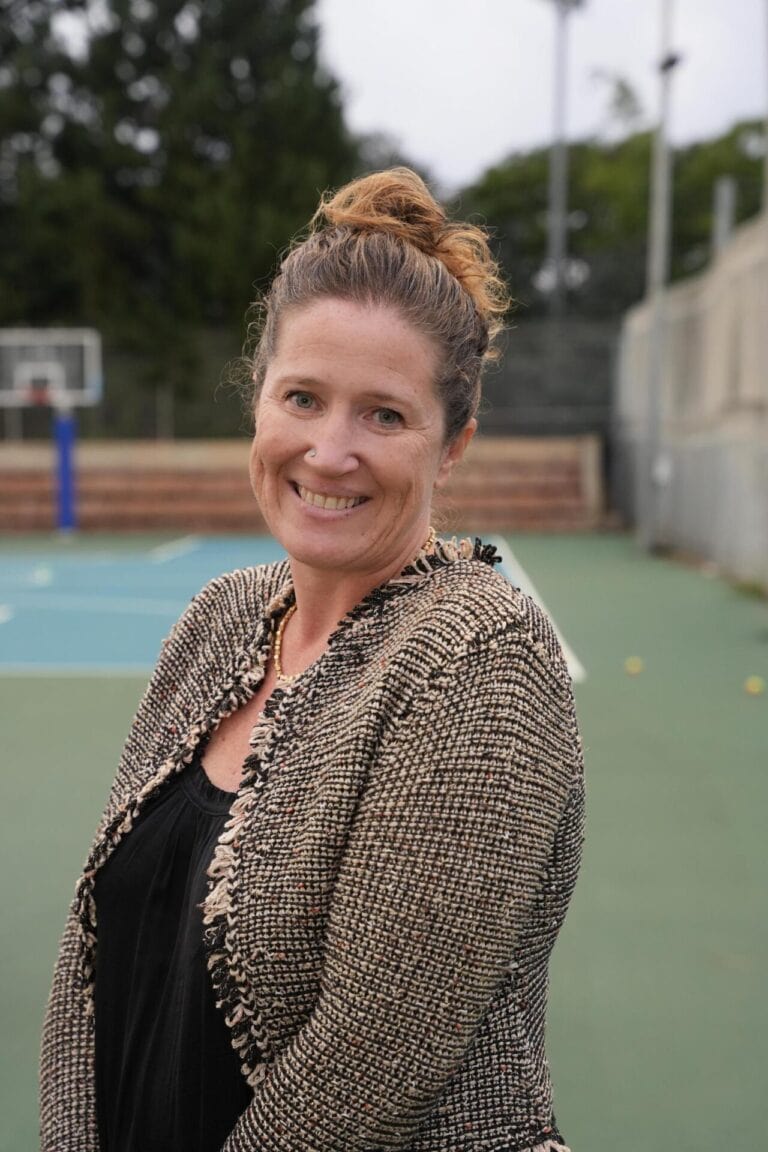
Wilson grew up in a typical Zionist home in the predominantly Jewish North London suburb of Hendon.
From an early age, she recalls asking her parents why they didn’t live in Israel “as we have the choice that our grandparents unfortunately didn’t have.”
She realized her dream in 1993 at the age of 18 when she moved to Israel “with a lot of hope” and went to study history and geography at Hebrew University.
She recalls a trip to the Cave of the Patriarchs and Matriarchs in Hebron. “We got off the bus and there was no one on the street so we asked, ‘Where is everybody?’ and the guide answered that they are under curfew. It was a reality we didn’t know existed. It took me a long time to educate myself.”
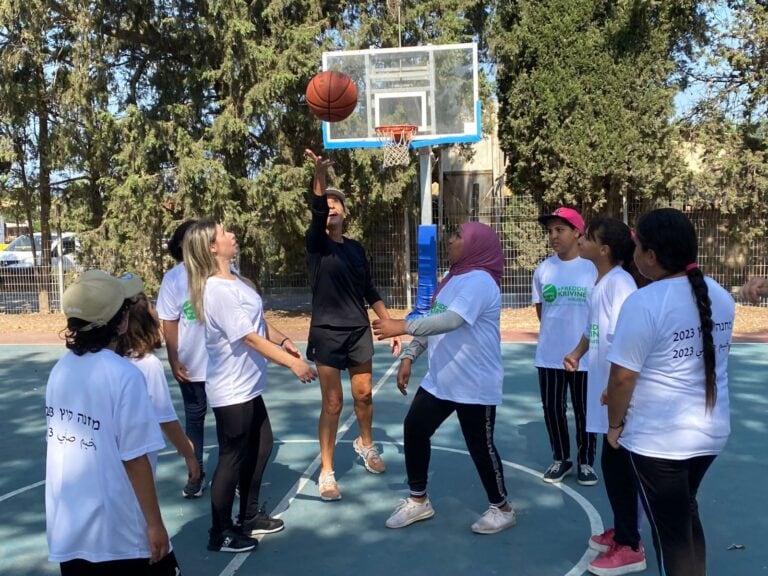
One of her first jobs was with the Palestinian Peace Coalition headed by former Israeli politician Yossi Beilin. “One day I was on the beach in Tel Aviv and the next day I was on the plane to Oslo for the secret talks that developed into the Geneva Accords,” she recalls.
Wilson’s next position was with Peace Now, where she remained for 12 years. Again challenges were rife as the second intifada had just broken out.
“Everyone was giving up, there were no activists, no money and we had to build up support again.”
Rebuilding the dream
Then a chance meeting with Jane Krivine, daughter of Freddie Krivine, presented her with her next challenge.
The tennis project had been running for 15 years but was in need of streamlining, Wilson explains.
She “fell in love with the project” and set about rebuilding the dream of its founder to empower Arab youth from the most socio-economically disadvantaged villages in Israel and to break down stereotypes of Jewish and Arab children through tennis.
A clubhouse was set up on Moshav Hanania to serve populations from Caesarea (Jewish) and Jisr az-Zarqa (Arab) on the coast up to Zichron Ya’akov (Jewish) and Faradis (Arab) in the Carmel Mountains.
In 2022, FKI was awarded the Israeli Speaker of Parliament Prize in recognition of its impact.
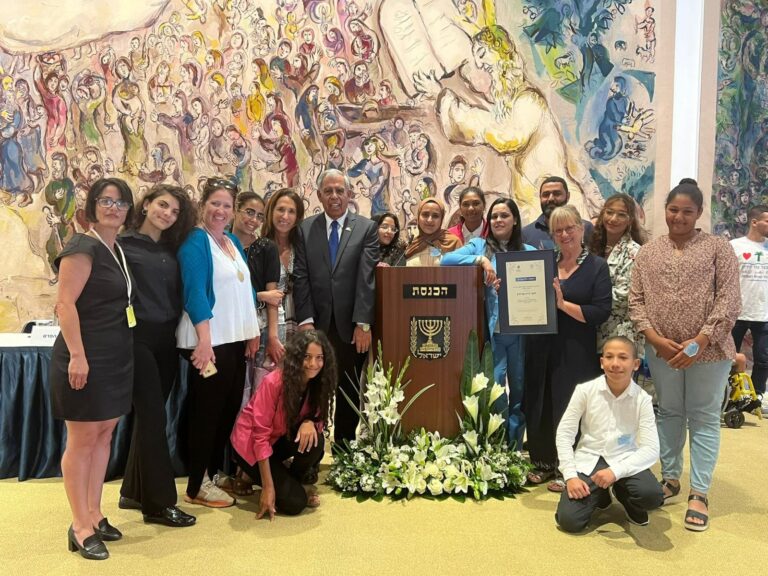
Tennis is perfectly suited to the task, points out Wilson. As an individual sport, it doesn’t allow kids, however self-conscious, to take a back seat as “you have to concentrate and hit the ball back. As a non-contact sport it’s also good for girls, especially from traditional communities.”
Before and after
Challenges existed way before October 7. One Jewish mother, Wilson recalls, told her that on the way to summer camp her daughter asked if the Arab kids would come with knives and was worried that she had never spoken to an Arab girl her age before.
“It’s totally normal because this is what they see on the news and TikTok videos,” says Wilson, whose own children are ages 11, 13 and 20.
Meeting role models such as the Hebrew- and Arabic-speaking coaches and volunteers is the best way to reverse this thinking, she believes.
Parents, who socialize on the club’s patio while watching their kids play, also come with preconceptions but “suddenly it’s all natural and normal as this is a safe space, it’s a relaxed atmosphere with no pre-ordained political purpose.”
After October 7, Wilson began meeting with community representatives. She recalls a discussion with the Israeli Arab head of social activities for the Haifa municipality.
“After discussing her pain and my pain, we came to the same conclusion: We have one country only and we have to get on.”
Plans for the future
In January, the new Community & Tennis Clubhouse was reopened after an extensive refurbishment, funded by the Clore Israel Foundation, that added a classroom for volunteers to help with language learning; a kitchen; and a patio for socializing next to the courts.
A Ramadan games and Iftar dinner was held for 150 Jewish and Arab guests, along with a Wimbledon screening and community-building workshops for 10- to 12-year-old Jewish and Arab children, followed by the sixth annual FKI summer camp in July.
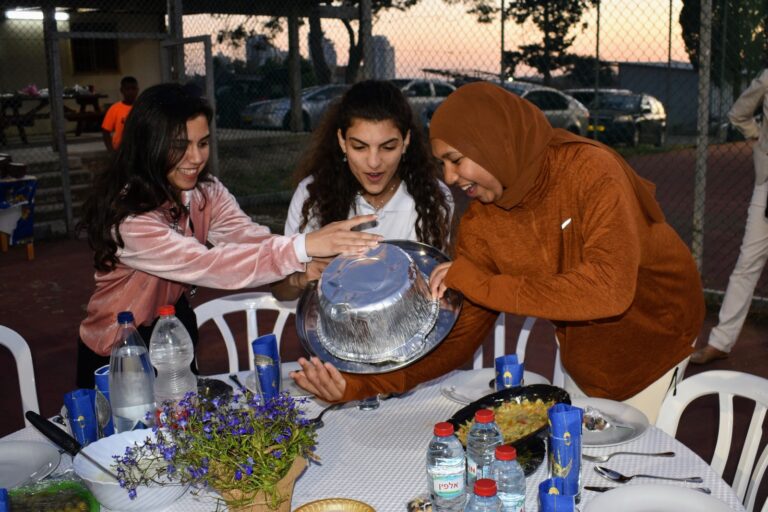
“I know we are not changing the whole world, but we are breaking down barriers,” Wilson says humbly of her tennis project.
For more information, click here.




